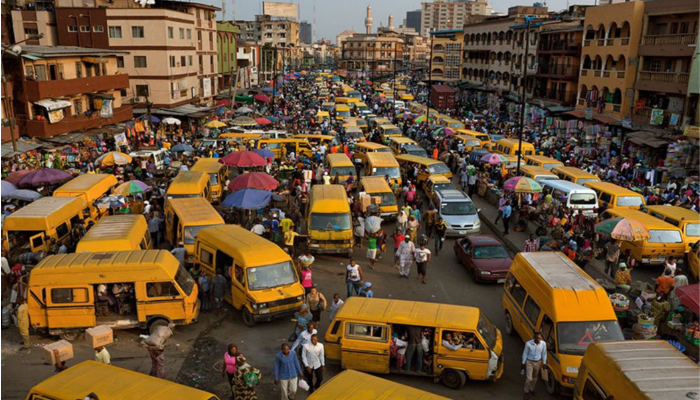Infostride News recently reported on Nigeria’s inflation landscape, revealing a surprising downturn in transport inflation for the first time in over two years, according to data released by the National Bureau of Statistics (NBS). In October 2023, Nigeria’s transport inflation decelerated to 27.04%, marking a notable drop from the two-year high of 27.18% recorded in the previous month.
The last instance of transport inflation decline was observed in July 2019. This unexpected downturn occurred despite a surge in transportation costs nationwide, triggered by the removal of the petrol subsidy and a concurrent increase in crude oil prices.
The removal of the petrol subsidy in Nigeria had a seismic impact on the transport sector and the broader economy. Premium Motor Spirit (PMS) prices skyrocketed from a relatively moderate average of N189 per litre to an astonishing N600, reflecting a staggering increase of over 200%. This abrupt and substantial hike in fuel prices had a cascading effect, creating ripples across the country’s transportation networks.

The surge in fuel prices, exacerbated by the subsidy removal, also contributed to a significant depreciation of the national currency, the naira, against the USD. With a depreciation exceeding 40%, driven by the floating of the local currency and the consolidation of multiple FX markets into the National Autonomous Foreign Exchange Market (NAFEM), the transport sector faced additional challenges, particularly in the aviation industry.
The confluence of factors—subsidy removal, fuel price spikes, and currency devaluation—created a perfect storm for the air travel industry. Already grappling with the escalating costs of aviation fuel, airlines found themselves navigating an even more treacherous terrain.
Inflation in Nigeria has reached its highest level in over 18 years, standing at 27.33% in October 2023, according to the NBS. This marks the 10th consecutive month of increase, with both components of the headline index growing at an accelerated pace. Food inflation rose to 31.52%, the highest level since August 2005, while core inflation accelerated to 22.58%, the highest since December 2006.
Analyzing the contribution to year-on-year inflation by divisional level, the report highlighted that food and non-alcoholic beverages had the most significant impact with 14.16%, followed by household consumables (4.57%), clothing and footwear (2.09%), and transport (1.78%). Urban inflation rose to 29.29%, while rural inflation surged to 25.58% in the review month.
Experts, including policy and strategy consultant Annie Olaloku Teriba and macroeconomic analyst Samuel Oyekanmi, have pointed out the role of rising transportation costs in driving up Nigeria’s food inflation and, consequently, the headline index. The impact of transportation cost increases on the final selling price has led to faster inflation rates, particularly in the southern region of the country.
Interestingly, amidst these challenges, there is a glimmer of hope as transport inflation showed a decline in October 2023. While this may indicate some stability in transport prices across the country, it’s crucial to note that it signifies a slowdown in the pace of price increases rather than an actual reduction in transport costs.
Beyond the scope of transportation, these economic dynamics have broader implications for Nigeria’s economy. The interplay of subsidy removal, fuel price hikes, and currency devaluation has contributed to inflationary pressures, affecting businesses, consumers, and overall economic stability. In navigating this complex landscape, the government may need to consider strategic policy adjustments to balance economic growth and stability effectively. As Infostride News continues to monitor and report on these economic developments, stakeholders and policymakers will be keenly observing the evolving situation and potential avenues for mitigating the challenges posed by these multifaceted economic forces.
Support InfoStride News' Credible Journalism: Only credible journalism can guarantee a fair, accountable and transparent society, including democracy and government. It involves a lot of efforts and money. We need your support. Click here to Donate
